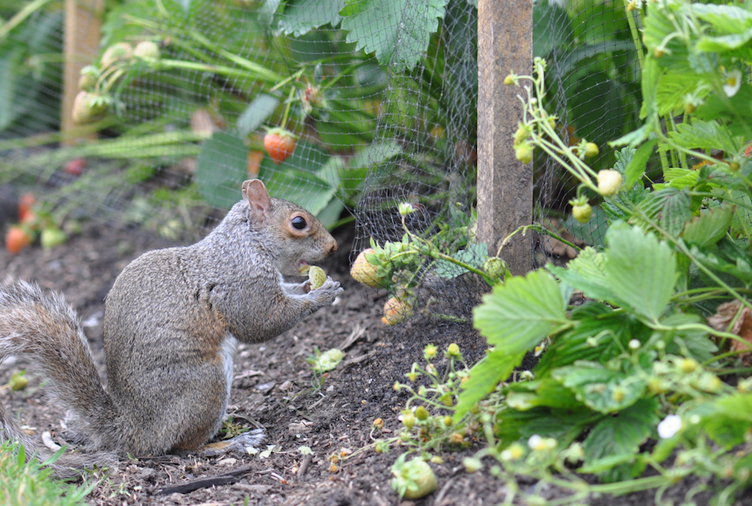Learn How To Repel Squirrels From Garden!!
While it’s always a treat to see mischievous bushy-tailed squirrels romping in parks and forest glades, they’re a real nuisance in the garden, happily ordering appetizers of growing vegetables and fruit, followed by your prized bulbs for dessert.
Nuts and berries make for delicious squirrel ready-meals, and they will strip the bark from trees, too. And beyond interfering with your most prized garden ideas, they can wreak havoc if they get into your attic. Here are the best natural ways to get rid of squirrels – try a combination for best results.
Preventing Squirrels In Garden
The first thing you can do to make sure it will not attract squirrels is not to leave any food outside trash cans because the smell can easily attract them to your garden.
If they have already occupied the garden and have been eating your tomatoes, cucumbers or any other vegetables, it is a sign that squirrels may be thirsty. Try putting a dish of water near the vegetables. That way, squirrels would rather drink freshwater than eat your tomato. Unless they are very naughty.
How To Repel Squirrels from Garden

Here’s you can find best tips how to repel squirrels from your garden.
Hide or relocate their food. Be diligent about cleaning up fallen nuts, acorns and berries. Make the process faster and easier with a handy nut gatherer. These food sources can be relocated to an area where squirrels are welcome, such as a back corner of your yard (see #7 below). Also, keep trash can lids securely closed as well.
Get a dog. Most dogs love to chase squirrels. Put them on squirrel patrol and let them scare the squirrels away.
Turn up their noses. Squirrels are offended by many of the same scents as deer, so repellents like Plantskydd Deer Repellent work well. You can also try a thin layer of coffee grounds or tucking a small amount of dog hair around and under plants.
Employ natural predators. Use a squirrel’s natural predators to your advantage by attracting hawks or owls by placing raptor perches or owl nests nearby. However, this approach is not recommended if you have small animals in the yard that you’d like to keep there.
Use companion plants. Discourage squirrels by surrounding or inter-planting with varieties that they turn their noses up to, like mint, marigolds, nasturtiums, or mustard. You can also try crown imperial bulbs (Fritillaria), but it is recommended that you plant these far away from inhabited areas such as patios or porches because of their strong skunk-like smell.
Cover the ground. Squirrels don’t particularly like the feel of mulch (especially gravel) under their feet, so add it to garden beds. When used over newly planted bulbs, it can also help disguise the scent of the fresh bulbs. You might also try laying down aluminum foil.
Create physical barriers. Your local hardware store likely carries hardware cloth, which is a mesh cloth sold in rolls and an effective method to protect potted plants, individual plants, or sections of the garden where squirrels have been digging. Lay the mesh flat over soil and then cover it with more soil or an unfriendly-to-squirrels mulch, such as gravel or pebbles.
In conclusion, if you notice that you have hungry squirrels in your garden, don’t try to feed them or give them food! That way, they will come back with maybe even more rodent friends. Remove any leftovers or compost in your garden and keep it clean. Don’t forget to re-apply the natural repellents after bad weather conditions and consider getting yourself a dog.
